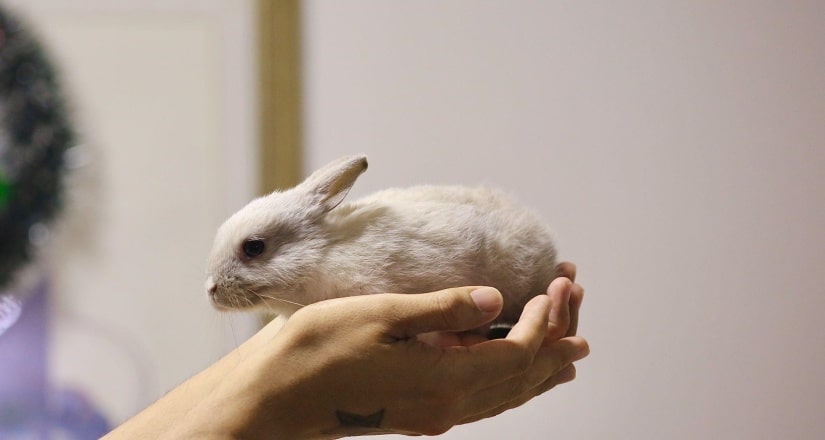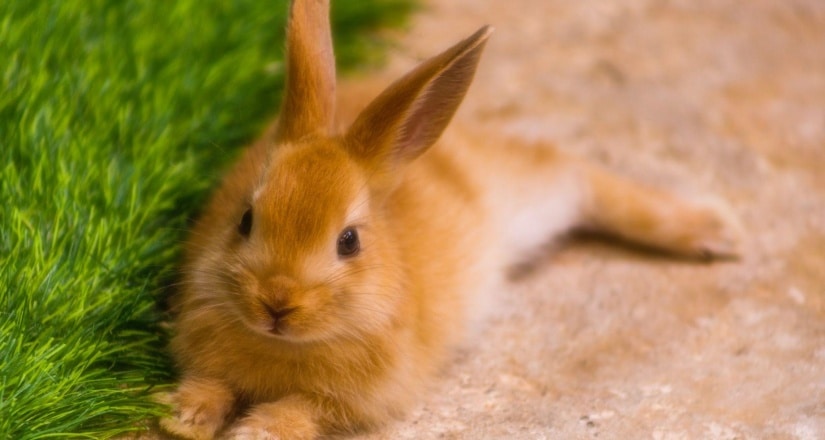What would you say if I told you that rabbits are actually quite friendly animals? Well, they are! They’re also very cute. And they’re even easier to care for than dogs or cats. In fact, they’re perfect pets for beginners who want to get into pet ownership.
People who opt to adopt rabbits rather than purchase them from breeders have several reasons for doing so. For starters, rabbits are much less expensive than other types of pets. Plus, they require little maintenance, and they don’t shed fur.
Rabbits are extremely social creatures. They enjoy interacting with their owners and other animals. If you’ve always wanted to add a furry friend to your family, then adopting a bunny might be the perfect choice for you.
Types of Rabbits to Adopt for the Home
Rabbits are cute little animals that are very friendly and love being around humans. They also provide companionship and entertainment for children and adults alike.
The rabbit is a diverse breed with a variety of personality traits, habits, and characteristics. It is true that some animals are docile, others adventurous and playful, and some are more aloof or shy.
When choosing a rabbit, consider the type of lifestyle you want to live. If you plan to take care of them, then you should choose a breed that is suited to your lifestyle.
Let’s learn about some rabbit types:
-
New Zealand White Rabbit
New Zealand white rabbits have been bred for many years for their meat production. The docile, friendly, and hardy characteristics of these animals are well known. Glossy, dense, and soft fur is characteristic of them. New Zealand whites are not considered a show breed, but they do make good pets.
-
Dutch Rabbit
Dutch rabbits were originally developed for meat production. They are similar to New Zealand whites in appearance, except they are smaller and have longer ears. Dutch rabbits are also known for being docile and friendly.
-
Californian Rabbit
Californian rabbits are often confused with Dutch rabbits, but they are actually different species. They are larger than both New Zealand and Dutch rabbits and have shorter ears. Californians are also known for being hardier and less prone to disease than New Zealand and Dutch rabbits.
-
Angora Rabbit
Angoras are a rare type of rabbit that was first domesticated in China. They are known for having long, soft hair. Angoras are also known for being gentle and docile.
-
Chinchilla Rabbit
Chinchillas are small rodents native to South America. They are famous for their fluffy coats and unique coloration. Chinchillas are also known for being extremely intelligent and affectionate.
-
Himalayan Rabbit
Himalayans are a cross between domestic and wild rabbits. They are known for producing high-quality wool. Himalayans are also known for being playful and curious.
-
Netherland Dwarf Rabbit
Netherland dwarfs are domestic breeds. Usually, they will weigh around 1-1.5kg which makes them one of the smallest rabbit breeds of all. Despite their size, they come in a variety of colors.
Things You Should Know When Adopting a Rabbit

Rabbits are small mammals that come in many different colors and patterns. They are popular among children and are good companions. It is important to know several things before adopting a rabbit. Find out more about them by reading on!
- The Cost of Adopting a Rabbit: There are many costs associated with adopting a rabbit. These include the cost of food, vet bills, supplies, and other expenses. If you plan to keep an animal as a pet, you’ll also need to pay for its care.
- The Care and Feeding of Rabbits: To make sure your new pet has everything it needs, you must first understand how rabbits eat. Rabbits can eat a variety of food. They can eat hay and pellets. If you feed your rabbit pellets, make sure that they are high in fiber. A good diet consists of good quality hay and fresh vegetables. In addition, water is an important part of daily intake.
- Health Issues Associated with Rabbits: There are some health issues associated with rabbits. These include respiratory infections, ear mites, and eye diseases. However, these are not common among healthy rabbits.
- The Housing Requirements of Rabbits: If you plan to adopt a rabbit, then you need to make sure that you provide him/her with proper housing. This includes an indoor rabbit cage, bedding material, toys, food, water, and shelter.
- The Possibility of Getting Rabies from a Rabbit: It is true that rabbits do not carry rabies. However, they can still transmit other diseases such as parvovirus, distemper, and myxomatosis. Humans can be affected by these diseases in a serious way. Therefore, before adopting a rabbit, you must ensure that he/she has been vaccinated.
Things You Should Consider When Adopting a Rabbit
Rabbits are cute, cuddly animals that are often kept as pets. Their intelligence and love make them very popular. If you’ve ever wanted a pet rabbit, then now is the time to get started.
When adopting a rabbit there are certain things you must consider before bringing one home. Despite their cute and cuddling look, rabbits can bond with their owner deeply if you treat them well.
Let’s learn more about some of the key points:
-
Don’t Buy from Pet Stores
Rabbits are prone to illness if you keep them in unhealthy places they will become sick. Pet stores often keep animals all together which can become serious health issues for rabbits. Instead of buying rabbits from a pet shop, you can adopt one from a local shelter or rescue group.
-
Don’t Feed Your Rabbit Too Often
If you feed your rabbit too much, he’ll gain weight quickly. This will make him feel uncomfortable and unhappy. He’ll also become more prone to diseases such as pneumonia and UTIs. On the other hand, underfeeding your rabbit will cause him to lose weight, making him weak and vulnerable to injury.
-
Don’t Leave Them Alone All Day
Rabbits are social by nature and they like to spend time with their owner. If you keep them alone for a long time they will become distressed. They like to spend their day running outdoors or around the house. Pet rabbits are not independent, so they will always require assistance with their supply.
7 Common Mistakes to Avoid When Adopting a Rabbit

Rabbits are social animals who thrive on human interaction. They love to play, eat, sleep, and run around. They don’t like being cooped up or left alone. When threatened, rabbits can become aggressive with children and other pets.
There are several common mistakes that new owners make when adopting a rabbit. Here are 10 of them.
-
1. Feeding the Rabbit the Wrong Food
Rabbits are herbivores. That means the ideal rabbit diet consists of hay, vegetables, and plants. If you feed them a different diet, their health will suffer, and they may even get parasites or illnesses.
In addition, you should never offer many fruits except a slice or two pieces of apple, peach, pear, etc. You should also avoid feeding carrots too much as it contains a high amount of sugar.
-
2. Don’t Often Pick Your Rabbit
Rabbits are jovial animals but some of them are shy and fearful. People normally believe that they love cuddling and every time they see them want to hold them or carry them. In reality, they don’t like to be held. If you hold them they lose the ability to escape hence they become uncomfortable and panicked.
If you often do this they will start to relate to you with fear. Whenever you get too close to them, they will run away. Instead of forcing them to cuddle, you can interact with them in a friendly manner. This way they will feel safe and become comfortable playing around you.
-
3. Keeping Rabbits Outside
As cute as they are, most rabbits should not be kept outside. They are social animals that enjoy interaction with other animals and people, so being separated from the rest of the pack is likely to cause a lot of stress. Also, rabbits don’t do well in hot and humid environments.
If you live in a hot and humid climate, you should take your rabbit indoors. If your rabbit lives indoors, you can still take him or her outside for exercise and to help relieve stress.
If you do decide to keep your rabbit outside, make sure that they have lots of shade, water, and a digging area. Moreover, keep in mind that rabbits are naturally diurnal animals and therefore are active during the day. If you keep your rabbit outside at night, he or she will probably feel very stressed out.
-
4. Lack of Quality Time with Your Rabbit
Lack of attention can make a rabbit feel lonely and unhealthy. If you are thinking to adopt a furry friend make sure you can spare one hour or so to spend some quality time together.
If you have a job or a busy schedule, you can still find time to spend quality time with your rabbit. Make sure to check the comprehensive guide to pet rabbit care and maintenance. This will give you a good idea of how to make use of your time with your new bunny friend.
Getting your rabbit to cuddle and play is a great way to spend time together. Try to find something that your rabbit enjoys so that you can bond and have fun together.
-
5. Not Putting up a Rabbit Barrier
Most rabbit owners make the mistake of not bunny-proofing the house. A rabbit’s curious nature will lead them to explore every inch of their new home.
Rabbits tend to chew everything if you don’t rabbit-proof the house. Be sure not to leave electrical cords or outlets where they are accessible.
Make sure that there are no hanging objects that can cause your rabbit harm, and make sure that there are no toxic plants or chemicals in your home. If you don’t bunny-proof the house, your rabbit might get injured or poisoned.
-
6. Giving Unwholesome Pellet Mixtures to Rabbits
Although rabbits are herbivores, they enjoy eating pellet mixtures. Most of the pellet mixtures are low in fiber and contain a high amount of sugar which is not good for rabbit health.
Many rabbit foods contain a high amount of protein. But these foods are usually too high in calories and can be unhealthy for your rabbit.
hey can eat hay, grass, or pellets made especially for rabbits. You can find pellets online or in pet stores. Never give your rabbit alfalfa or timothy grass. If you do, your rabbit will become overweight and might even develop health complications.
-
7. Avoiding Neutering or Spaying the Rabbit
A female rabbit can have a litter of four to seven babies per year which is unhealthy for the rabbit and will reduce her lifespan. So it’s important to spay or neuter the rabbit.
If a rabbit hasn’t been spayed or neutered when they reach maturity, they may start spraying urine around their living quarters or become increasingly territorial. Unspayed female rabbits have an 80 percent risk of developing uterine cancer by the time they are six years old.
Conclusion
Rabbits have always been an excellent pet option for first-time pet owners. They can be sweet and playful if they are trained and cared for properly. On top of all that, bunnies make wonderful emotional support animals. You may be able to volunteer at a local rabbit rescue to get a feel for what they’re like as pets. Then you can make the final decision as to whether adopting a rabbit is your cup of tea or not.
